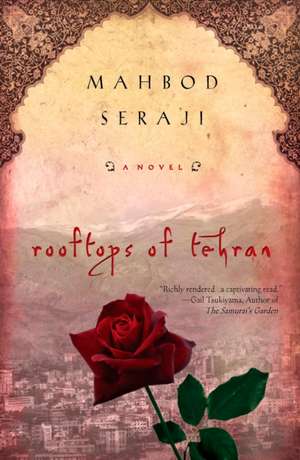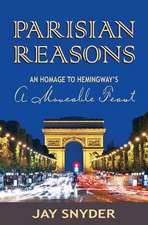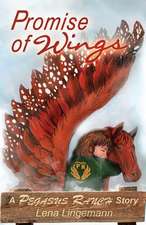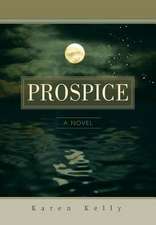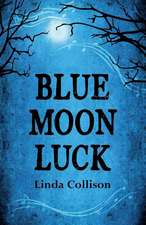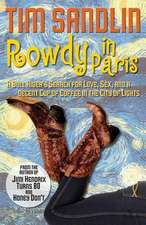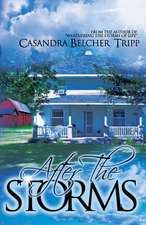Rooftops of Tehran
Autor Mahbod Serajien Limba Engleză Paperback – 30 apr 2009 – vârsta de la 18 ani
From "a striking new talent"(Sandra Dallas, author of Tallgrass) comes an unforgettable debut novel of young love and coming of age in an Iran headed toward revolution.
In this poignant, eye-opening and emotionally vivid novel, Mahbod Seraji lays bare the beauty and brutality of the centuries-old Persian culture, while reaffirming the human experiences we all share.
In a middle-class neighborhood of Iran's sprawling capital city, 17-year-old Pasha Shahed spends the summer of 1973 on his rooftop with his best friend Ahmed, joking around one minute and asking burning questions about life the next. He also hides a secret love for his beautiful neighbor Zari, who has been betrothed since birth to another man. But the bliss of Pasha and Zari's stolen time together is shattered when Pasha unwittingly acts as a beacon for the Shah's secret police. The violent consequences awaken him to the reality of living under a powerful despot, and lead Zari to make a shocking choice...
In this poignant, eye-opening and emotionally vivid novel, Mahbod Seraji lays bare the beauty and brutality of the centuries-old Persian culture, while reaffirming the human experiences we all share.
In a middle-class neighborhood of Iran's sprawling capital city, 17-year-old Pasha Shahed spends the summer of 1973 on his rooftop with his best friend Ahmed, joking around one minute and asking burning questions about life the next. He also hides a secret love for his beautiful neighbor Zari, who has been betrothed since birth to another man. But the bliss of Pasha and Zari's stolen time together is shattered when Pasha unwittingly acts as a beacon for the Shah's secret police. The violent consequences awaken him to the reality of living under a powerful despot, and lead Zari to make a shocking choice...
Watch a Video
Preț: 91.34 lei
Nou
Puncte Express: 137
Preț estimativ în valută:
17.48€ • 18.25$ • 14.47£
17.48€ • 18.25$ • 14.47£
Carte disponibilă
Livrare economică 15-29 martie
Preluare comenzi: 021 569.72.76
Specificații
ISBN-13: 9780451226815
ISBN-10: 045122681X
Pagini: 348
Dimensiuni: 137 x 206 x 23 mm
Greutate: 0.34 kg
Editura: New American Library
ISBN-10: 045122681X
Pagini: 348
Dimensiuni: 137 x 206 x 23 mm
Greutate: 0.34 kg
Editura: New American Library
Recenzii
"A stirring story about the loss of innocence, Rooftops of Tehran reveals a side of Iran understood by few Westerners. An ambitious first novel-full of humor, originality, and meaning."
- John Shors, author of Beneath a Marble Sky
"Rooftops of Tehran is a richly rendered first novel about courage, sacrifice, and the bonds of friendship and love. In clear, vivid details, Mahbod Seraji opens the door to the fascinating world of Iran and provides a revealing glimpse into the life and customs of a country on the verge of a revolution. A captivating read."
-Gail Tsukiyama, Author of The Street of a Thousand Blossoms and The Samurai's Garden
"In his haunting debut novel, Mahbod Seraji brings humor and humanity to a story of secret love in the brutal last days of the Shah. Set against the background of repression that launched the Iranian revolution, Pasha's and Zari's story shows that love and hope among the young thrive even in the most oppressive of times. Seraji is a striking new talent."
- Sandra Dallas, author of Tallgrass
"Rooftops of Tehran evoked many memories, along with tears and smiles, of starry nights on rooftops, long lost loves, and intense, passionate feelings of anger at the injustices... of the Pahlavi regime."
-Nahid Mozaffari, editor of Strange Times, My Dear: The PEN Anthology of Contemporary Iranian Literature
"Beyond being a bittersweet love story, Rooftops of Tehran is a story of Community. No reader will be unfamiliar to the situation of the alley--the neighborhood--where these characters are united and bound together by history, ritual, grief, respect, and by the bond of protection that arises under the brutality of an oppressive government. Rooftops of Tehran takes an uncommon and refreshing view of Iran and reveals how an American immigrant is born out of a young foreigner's desperation for self-determination and social freedom."
-Susanne Pari, author of The Fortune Catcher
"Rooftops of Tehran combines a coming of age love story with a compelling tale of struggle against dictatorship. You learn a lot about Iranian culture while coming to understand characters with universal appeal."
- Reese Erlich, author The Iran Agenda:The Real Story of US Policy and the Middle East Crisis
"What a profound pleasure to discover such solid storytelling and splendid prose in a debut novel. With the voice of a poet, Seraji has told a universal tale of love, loss, and ultimately of hope. It is this hope, most of all, that will linger long after the last page is turned. Thank God for authors like Seraji, who show us that no matter how distant apart our worlds may be, in the humanness of our hearts we are all united."
-William Kent Krueger, author of Red Knife and the award-winning Cork O'Connor series
"Repression and revolution provide the background for a deeply felt love story that gives outsiders a rare look inside modern Iran. This is a gripping account of a nation's violent lurch from one kind of tyranny to another, and also a delicately insightful portrait of how ordinary people react when their worlds suddenly collapse. At a time when we urgently need to know more about Iranians, Rooftops of Tehran introduces both the complexity of their political history and the richness of their emotional lives."
-Stephen Kinzer, author of All the Shah's Men: An American Coup and the Roots of Middle East Terror
"Seraji's wonderful coming-of-age story is at times funny and sweet as well as thought-provoking and heart-wrenching. A powerful tale of the universal longings of teenagers compounded by the horrors of tyranny."
-Booklist
"...charmingly romantic...Seraji captures the thoughts and emotions of a young boy and creates a moving portrait of the history and customs of the Persians and life in Iran."
-Publisher's Weekly
"Refreshingly filled with love rather than sex, this coming-of-age novel examines the human cost of political repression."
-Kirkus
- John Shors, author of Beneath a Marble Sky
"Rooftops of Tehran is a richly rendered first novel about courage, sacrifice, and the bonds of friendship and love. In clear, vivid details, Mahbod Seraji opens the door to the fascinating world of Iran and provides a revealing glimpse into the life and customs of a country on the verge of a revolution. A captivating read."
-Gail Tsukiyama, Author of The Street of a Thousand Blossoms and The Samurai's Garden
"In his haunting debut novel, Mahbod Seraji brings humor and humanity to a story of secret love in the brutal last days of the Shah. Set against the background of repression that launched the Iranian revolution, Pasha's and Zari's story shows that love and hope among the young thrive even in the most oppressive of times. Seraji is a striking new talent."
- Sandra Dallas, author of Tallgrass
"Rooftops of Tehran evoked many memories, along with tears and smiles, of starry nights on rooftops, long lost loves, and intense, passionate feelings of anger at the injustices... of the Pahlavi regime."
-Nahid Mozaffari, editor of Strange Times, My Dear: The PEN Anthology of Contemporary Iranian Literature
"Beyond being a bittersweet love story, Rooftops of Tehran is a story of Community. No reader will be unfamiliar to the situation of the alley--the neighborhood--where these characters are united and bound together by history, ritual, grief, respect, and by the bond of protection that arises under the brutality of an oppressive government. Rooftops of Tehran takes an uncommon and refreshing view of Iran and reveals how an American immigrant is born out of a young foreigner's desperation for self-determination and social freedom."
-Susanne Pari, author of The Fortune Catcher
"Rooftops of Tehran combines a coming of age love story with a compelling tale of struggle against dictatorship. You learn a lot about Iranian culture while coming to understand characters with universal appeal."
- Reese Erlich, author The Iran Agenda:The Real Story of US Policy and the Middle East Crisis
"What a profound pleasure to discover such solid storytelling and splendid prose in a debut novel. With the voice of a poet, Seraji has told a universal tale of love, loss, and ultimately of hope. It is this hope, most of all, that will linger long after the last page is turned. Thank God for authors like Seraji, who show us that no matter how distant apart our worlds may be, in the humanness of our hearts we are all united."
-William Kent Krueger, author of Red Knife and the award-winning Cork O'Connor series
"Repression and revolution provide the background for a deeply felt love story that gives outsiders a rare look inside modern Iran. This is a gripping account of a nation's violent lurch from one kind of tyranny to another, and also a delicately insightful portrait of how ordinary people react when their worlds suddenly collapse. At a time when we urgently need to know more about Iranians, Rooftops of Tehran introduces both the complexity of their political history and the richness of their emotional lives."
-Stephen Kinzer, author of All the Shah's Men: An American Coup and the Roots of Middle East Terror
"Seraji's wonderful coming-of-age story is at times funny and sweet as well as thought-provoking and heart-wrenching. A powerful tale of the universal longings of teenagers compounded by the horrors of tyranny."
-Booklist
"...charmingly romantic...Seraji captures the thoughts and emotions of a young boy and creates a moving portrait of the history and customs of the Persians and life in Iran."
-Publisher's Weekly
"Refreshingly filled with love rather than sex, this coming-of-age novel examines the human cost of political repression."
-Kirkus
Extras
Winter of 1974
Roozbeh Psychiatric Hospital, TehranI hear someone's voice chanting, and the repetitive verses lap like water at the edge of my consciousness.
If I had a book, I would read it.
If I had a song, I would sing it.
I look around until I see an old man standing a few meters away chanting in a steady, empty tone. The place does not look familiar to me. The blue robe that covers my body, the wheelchair I am sitting in, the sunlight creeping between the shades that warms me—all feel strange.
If I knew a dance, I would dance it.
If I knew a rhyme, I would chant it.
If I had a life, I would risk it.
If I could be free, I would chance it.
Outside in the yard, men of all shapes and ages shuffle around in blue robes. There is something peculiar about each of them. They look lost.
Suddenly a surge of emotions fills my chest and rushes into my throat. A little nurse with a kind, full face that resembles an apple runs up to me and plants her hands on my shoulders and screams, "Help me out here, help me out!" A man in a white uniform runs over and tries to hold me down.
"Stay in your chair, honey. Stay in your chair," Apple Face shouts, which means I must be moving. I focus on sitting still, and look toward the old man on the far side of the room. He is gazing at me as he frantically repeats his mantra:
If I had a horse, I would ride it.
If I had a horse, I would ride it.
If I had a horse…
I am taken to a room with a bed, and Apple Face says, "I'm going to give you a sedative to make you feel better, darling."
I feel a pinch in my arm, and suddenly my head and arms become unbearably heavy and my eyes slide shut.
1
Summer of 1973
Tehran
My Friends, My Family, and My Alley
Sleeping on the roof in the summer is customary in Tehran. The dry heat of the day cools after midnight, and those of us who sleep on the rooftops wake with the early sun on our faces and fresh air in our lungs. My mother is strictly against it, and reminds me each evening, "Hundreds of people fall off the roofs every year." My best friend, Ahmed, and I trade hidden smiles with each warning, then climb the stairs to spend our nights under stars that seem close enough to touch. The alley below settles into a patchwork of streetlight, shadow, and sound. A car hums slowly down the deserted street, cautious not to wake anyone, as a stray dog in the distance releases a string of officious barks.
"I hear your mother calling," Ahmed mumbles in the dark. I smile, aiming a good-natured kick that he easily rolls away from.
Our house is the tallest in the neighborhood, which makes our roof an ideal spot for stargazing. In fact, naming stars for our friends and the people we love is one of our favorite pastimes.
"Does everyone have a star?" Ahmed asks.
"Only good people."
"And the better you are the bigger your star, right?"
"Bigger and brighter," I say, as I do every time he asks the same question.
"And your star guides you when you're in trouble, right?"
"Your star and the stars of the people you love."
Ahmed closes one eye and lifts his thumb to block out one of the brighter stars. "I'm tired of looking at your big fat face."
"Shut up and go to sleep then," I say, laughing, letting my gaze relax into the velvety emptiness between each pinprick of light. My eyes travel down the sky until they rest on the familiar rise and fall of the Alborz Mountains, which serpentine between the desert and the blue-green Caspian Sea. I get distracted for a moment trying to decide if the darkness is black or so deeply blue that it just appears inky in comparison.
"I wonder why people are so unabashedly afraid of the dark," I ponder, and Ahmed chuckles. I know without asking that he is amused by my eccentric vocabulary, the product of a lifetime of heavy reading. My father pulled Ahmed and me aside one day and asked me, in front of family friends and relatives, what I thought life was about. I promptly said that life was a random series of beautifully composed vignettes, loosely tied together by a string of characters and time. My father's friends actually applauded, much to my embarrassment. Ahmed leaned over and whispered that I would soon be inaugurated as the oldest seventeen-year-old in the world, especially if I kept saying things like "unabashedly" and "beautifully composed vignettes."
Ahmed and I have just finished the eleventh grade and will be entering our last year of high school in the fall. I look forward to the end of preparatory school as much as the next seventeen-year-old, but this lively anticipation is tempered by my father's plans to send me to the United States to study civil engineering. Long ago, my father worked as a ranger, protecting the nationalized forests from poachers who cut down the trees illegally for personal profit. He now works in an office, managing an entire region with an army of rangers reporting to him.
"Iran is in dire need of engineers," Dad reminds me whenever he gets the chance. "We're on the verge of transforming ourselves from a traditional agricultural country to an industrial one. A person with an engineering degree from an American university secures a great future for himself and his family, in addition to enjoying the prestige of being called 'Mr. Engineer' for the rest of his life." I love my father, and I would never disobey him, but I hate math, I hate the idea of becoming an engineer, and I would hate being called Mr. Engineer. In my dreams I major in literature and study the philosophy of the ancient Greeks, evolution, Marxism, psychoanalysis, Erfan, and Buddhism. Or, I major in film and become a writer or a director, someone who has something worthwhile to say.
For now I live with my parents in a middle-class neighborhood. We have a typical Iranian house with a modest yard, a large guest room, and a hose—a small pool in the front yard. In our neighborhood, just like any other in Tehran, tall walls separate houses that have been built connected to each other. Our home has two full levels, and my room occupies a small section of the third floor, where a huge terrace is connected to the roof by a bulky mass of steel steps. Ours is the tallest house in the neighborhood, and has a southern exposure.
"I wouldn't live in a home with a northern exposure if it were given to me for free," my mother states repeatedly. "They never get any sun. They're a breeding ground for germs." My mother never finished high school, yet she speaks about health issues with the authority of a Harvard graduate. She has a remedy for every ailment: herbal tea to cure depression, liquidated camel thorns to smash kidney stones, powdered flowers to annihilate sinus infections, dried leaves that destroy acne, and pills for growing as tall as a tree—despite the fact that she stands an impressive five feet tall in stocking feet.
The peace of each summer night fades with the noises of families starting their day, and our alley bustles with kids of all ages. Boys shout and scuffle as they chase cheap plastic soccer balls, while girls go from house to house, doing what girls do together. Women congregate in different parts of the alley, making it easy to tell who likes whom by the way they assemble. Ahmed has divided these gatherings into three groups: the east, west, and central gossip committees.
Ahmed is a tall skinny kid with dark features and a brilliant smile. His strong but slender body, bold, broad jaw, and bright hazel eyes make him the picture of health, according to my mother's expert opinion. He's well liked in the neighborhood, and funny. I tell him he could become a great comedian if he took his God-given talent more seriously.
"Yes, more seriously," he replies. "I can become the most serious clown in the country!"
I've known Ahmed since I was twelve years old, when my family first moved to the neighborhood. We met for the first time at school when three bullies were beating me up. All the other kids stood by and watched, but Ahmed rushed to my aid. The boys were tall, big, and ugly, and despite our heroic attempts we both took a beating.
"I'm Pasha," I introduced myself after the fight.
Ahmed smiled and reached over for a handshake. "What was the fight about?" he asked.
I laughed. "You didn't know? Why did you help me?"
"Three to one! I have a problem with that. Of course, I knew they'd still take us, but at least it wasn't as unfair as three guys thrashing one."
I knew right then that Ahmed was going to be my best friend forever. His gallantry and upbeat attitude won me over instantly. The experience bound us together and prompted my father, an exheavyweight boxing champion, to start teaching us how to box—much to my mother's dismay.
"You're going to make them violent," she would complain to my unsympathetic father. To make things right, every night after dinner she would hold out a glass of amber liquid that smelled like horse urine on a hot summer day. "This will reverse what your father is doing to your temper," she assured me, while forcing me to drink the nauseating brew.
I loved boxing, but my mother's remedy nearly drove me to quit.
After a few months of training, as our punches became crisp—short and quick, but heavy when they needed to be—I began to ache for a rematch with the three bullies at school. My father overheard our plans for revenge and intervened.
"Sit down, Mr. Pasha," he said one day after practice. Then he pointed to Ahmed. "Would you join us, please?"
"Of course, Mr. Shahed," Ahmed responded, and as he was sitting next to me, he whispered, "I think we're in trouble, Mr. Pasha!"
"When one learns how to box," Dad started thoughtfully, "he joins the fraternity of athletes who never raise a hand against people weaker than themselves."
My mother stopped what she had been doing and walked up to stand sternly next to my father.
"But, Dad, if we don't beat up people weaker than ourselves, who do we beat up?" I asked, stunned. "And wouldn't it be dumb to pick on people stronger than ourselves anyway?"
Dad was doing his best not to look at Mom, who was staring at him like a tiger checking out a deer right before the final, fateful dash.
"I taught you how to box so you could defend yourself," he mumbled. "I don't want you to go looking for a fight."
Ahmed and I couldn't believe what we were hearing.
"I want you to promise me that you will always respect the code of our fraternity," my father insisted.
We must have been slow to react.
"I want you to promise," he repeated, his voice rising.
And so Ahmed and I grudgingly joined the fraternity of athletes who never beat up bullies who break the faces of kids weaker than themselves. At the time, of course, we had no idea that such a fraternity never existed.
"Iraj is lucky your dad made us promise," Ahmed says later, making us both laugh.
Iraj is a small, scruffy kid with a long pointed nose whose sunburned features make him look Indian. He's smart, has the best grades in our school, and loves physics and mathematics, the two subjects I hate most.
I am convinced Iraj likes Ahmed's oldest sister, because he can't keep his eyes off her when she is in the alley. Everyone knows you don't fancy a friend's sister, as if she were a girl from another neighborhood. If I were Ahmed and caught Iraj checking out my sister, I'd kick the shit out of him. But I'm not Ahmed. "Hey," he'll shout, trying hard not to smile when he startles Iraj, "stop looking at her or I'll break my pledge to the sacred brotherhood of the boxing fraternity."
"Sacred brotherhood of the boxing fraternity?" I whisper under my breath with a smile. "Brotherhood and fraternity mean the same thing. You shouldn't use them in the same sentence."
"Oh, you shut up." Ahmed laughs.
Iraj is the chess champion of our neighborhood. He is so good that no one is willing to play against him anymore. When we play soccer in the alley, Iraj plays chess against himself.
"Who's winning?" Ahmed asks with a smirk. Iraj ignores him. "Have you ever beaten yourself?" Ahmed asks. "You could, you know—if you weren't so fucking preoccupied with my sister."
"I'm not preoccupied with your sister," Iraj mumbles, rolling his eyes.
"Right," Ahmed replies, nodding. "If you have any trouble beating yourself, let me know and I'll be happy to do it for you."
"You know," I tease, "I used to get mad at him for looking at your sister, but it might not be so bad to have a chess champion as a brother-in-law."
"Bite your tongue," Ahmed growls, "or I'll raid your mother's pantry to mix you a special brew that will grow hair on your tongue."
The threat has some weight, considering the way my mother has applied her unique brand of knowledge and listened to her gut to diagnose me as an extreme introvert.
"Do you know what happens to people who keep everything to themselves?" she asks, not waiting for my answer. "They get sick." When I object that I'm not an introvert, she reminds me of the time I was four years old and fell down the steps. My two aunts, two uncles, and grandparents were visiting us that day, and my mother estimated that watching me tumble down two flights of stairs nearly caused two heart attacks, three strokes, and a handful of small ulcers.
"You broke your shin in three places!" she chides. "The doctor said he'd seen grown men cry after a break like that, but not you. Do you know what that kind of stress does to your body?"
"No," I say.
"It causes cancer."
Then she spits three times to atone for the thought.
In order to cure my introversion, she insists I drink a dusky concoction that looks and smells like used motor oil. I complain that her remedy tastes horrible, and she tells me to be quiet and stop whining.
"I thought this potion was to bring me out of my shell," I remind her.
"Hush," she orders, "whining doesn't count. If you want to be successful in life you must force yourself to be an extrovert," she explains. "Introverts end up as lonely poets or destitute writers."
"So," Ahmed ponders one day, "the engine oil makes you an extrovert, and the horse urine helps you crawl back into your shell." He shakes his head in empathy. "You are going to be one fucked-up person by the time your mother gets done with you."
Roozbeh Psychiatric Hospital, TehranI hear someone's voice chanting, and the repetitive verses lap like water at the edge of my consciousness.
If I had a book, I would read it.
If I had a song, I would sing it.
I look around until I see an old man standing a few meters away chanting in a steady, empty tone. The place does not look familiar to me. The blue robe that covers my body, the wheelchair I am sitting in, the sunlight creeping between the shades that warms me—all feel strange.
If I knew a dance, I would dance it.
If I knew a rhyme, I would chant it.
If I had a life, I would risk it.
If I could be free, I would chance it.
Outside in the yard, men of all shapes and ages shuffle around in blue robes. There is something peculiar about each of them. They look lost.
Suddenly a surge of emotions fills my chest and rushes into my throat. A little nurse with a kind, full face that resembles an apple runs up to me and plants her hands on my shoulders and screams, "Help me out here, help me out!" A man in a white uniform runs over and tries to hold me down.
"Stay in your chair, honey. Stay in your chair," Apple Face shouts, which means I must be moving. I focus on sitting still, and look toward the old man on the far side of the room. He is gazing at me as he frantically repeats his mantra:
If I had a horse, I would ride it.
If I had a horse, I would ride it.
If I had a horse…
I am taken to a room with a bed, and Apple Face says, "I'm going to give you a sedative to make you feel better, darling."
I feel a pinch in my arm, and suddenly my head and arms become unbearably heavy and my eyes slide shut.
1
Summer of 1973
Tehran
My Friends, My Family, and My Alley
Sleeping on the roof in the summer is customary in Tehran. The dry heat of the day cools after midnight, and those of us who sleep on the rooftops wake with the early sun on our faces and fresh air in our lungs. My mother is strictly against it, and reminds me each evening, "Hundreds of people fall off the roofs every year." My best friend, Ahmed, and I trade hidden smiles with each warning, then climb the stairs to spend our nights under stars that seem close enough to touch. The alley below settles into a patchwork of streetlight, shadow, and sound. A car hums slowly down the deserted street, cautious not to wake anyone, as a stray dog in the distance releases a string of officious barks.
"I hear your mother calling," Ahmed mumbles in the dark. I smile, aiming a good-natured kick that he easily rolls away from.
Our house is the tallest in the neighborhood, which makes our roof an ideal spot for stargazing. In fact, naming stars for our friends and the people we love is one of our favorite pastimes.
"Does everyone have a star?" Ahmed asks.
"Only good people."
"And the better you are the bigger your star, right?"
"Bigger and brighter," I say, as I do every time he asks the same question.
"And your star guides you when you're in trouble, right?"
"Your star and the stars of the people you love."
Ahmed closes one eye and lifts his thumb to block out one of the brighter stars. "I'm tired of looking at your big fat face."
"Shut up and go to sleep then," I say, laughing, letting my gaze relax into the velvety emptiness between each pinprick of light. My eyes travel down the sky until they rest on the familiar rise and fall of the Alborz Mountains, which serpentine between the desert and the blue-green Caspian Sea. I get distracted for a moment trying to decide if the darkness is black or so deeply blue that it just appears inky in comparison.
"I wonder why people are so unabashedly afraid of the dark," I ponder, and Ahmed chuckles. I know without asking that he is amused by my eccentric vocabulary, the product of a lifetime of heavy reading. My father pulled Ahmed and me aside one day and asked me, in front of family friends and relatives, what I thought life was about. I promptly said that life was a random series of beautifully composed vignettes, loosely tied together by a string of characters and time. My father's friends actually applauded, much to my embarrassment. Ahmed leaned over and whispered that I would soon be inaugurated as the oldest seventeen-year-old in the world, especially if I kept saying things like "unabashedly" and "beautifully composed vignettes."
Ahmed and I have just finished the eleventh grade and will be entering our last year of high school in the fall. I look forward to the end of preparatory school as much as the next seventeen-year-old, but this lively anticipation is tempered by my father's plans to send me to the United States to study civil engineering. Long ago, my father worked as a ranger, protecting the nationalized forests from poachers who cut down the trees illegally for personal profit. He now works in an office, managing an entire region with an army of rangers reporting to him.
"Iran is in dire need of engineers," Dad reminds me whenever he gets the chance. "We're on the verge of transforming ourselves from a traditional agricultural country to an industrial one. A person with an engineering degree from an American university secures a great future for himself and his family, in addition to enjoying the prestige of being called 'Mr. Engineer' for the rest of his life." I love my father, and I would never disobey him, but I hate math, I hate the idea of becoming an engineer, and I would hate being called Mr. Engineer. In my dreams I major in literature and study the philosophy of the ancient Greeks, evolution, Marxism, psychoanalysis, Erfan, and Buddhism. Or, I major in film and become a writer or a director, someone who has something worthwhile to say.
For now I live with my parents in a middle-class neighborhood. We have a typical Iranian house with a modest yard, a large guest room, and a hose—a small pool in the front yard. In our neighborhood, just like any other in Tehran, tall walls separate houses that have been built connected to each other. Our home has two full levels, and my room occupies a small section of the third floor, where a huge terrace is connected to the roof by a bulky mass of steel steps. Ours is the tallest house in the neighborhood, and has a southern exposure.
"I wouldn't live in a home with a northern exposure if it were given to me for free," my mother states repeatedly. "They never get any sun. They're a breeding ground for germs." My mother never finished high school, yet she speaks about health issues with the authority of a Harvard graduate. She has a remedy for every ailment: herbal tea to cure depression, liquidated camel thorns to smash kidney stones, powdered flowers to annihilate sinus infections, dried leaves that destroy acne, and pills for growing as tall as a tree—despite the fact that she stands an impressive five feet tall in stocking feet.
The peace of each summer night fades with the noises of families starting their day, and our alley bustles with kids of all ages. Boys shout and scuffle as they chase cheap plastic soccer balls, while girls go from house to house, doing what girls do together. Women congregate in different parts of the alley, making it easy to tell who likes whom by the way they assemble. Ahmed has divided these gatherings into three groups: the east, west, and central gossip committees.
Ahmed is a tall skinny kid with dark features and a brilliant smile. His strong but slender body, bold, broad jaw, and bright hazel eyes make him the picture of health, according to my mother's expert opinion. He's well liked in the neighborhood, and funny. I tell him he could become a great comedian if he took his God-given talent more seriously.
"Yes, more seriously," he replies. "I can become the most serious clown in the country!"
I've known Ahmed since I was twelve years old, when my family first moved to the neighborhood. We met for the first time at school when three bullies were beating me up. All the other kids stood by and watched, but Ahmed rushed to my aid. The boys were tall, big, and ugly, and despite our heroic attempts we both took a beating.
"I'm Pasha," I introduced myself after the fight.
Ahmed smiled and reached over for a handshake. "What was the fight about?" he asked.
I laughed. "You didn't know? Why did you help me?"
"Three to one! I have a problem with that. Of course, I knew they'd still take us, but at least it wasn't as unfair as three guys thrashing one."
I knew right then that Ahmed was going to be my best friend forever. His gallantry and upbeat attitude won me over instantly. The experience bound us together and prompted my father, an exheavyweight boxing champion, to start teaching us how to box—much to my mother's dismay.
"You're going to make them violent," she would complain to my unsympathetic father. To make things right, every night after dinner she would hold out a glass of amber liquid that smelled like horse urine on a hot summer day. "This will reverse what your father is doing to your temper," she assured me, while forcing me to drink the nauseating brew.
I loved boxing, but my mother's remedy nearly drove me to quit.
After a few months of training, as our punches became crisp—short and quick, but heavy when they needed to be—I began to ache for a rematch with the three bullies at school. My father overheard our plans for revenge and intervened.
"Sit down, Mr. Pasha," he said one day after practice. Then he pointed to Ahmed. "Would you join us, please?"
"Of course, Mr. Shahed," Ahmed responded, and as he was sitting next to me, he whispered, "I think we're in trouble, Mr. Pasha!"
"When one learns how to box," Dad started thoughtfully, "he joins the fraternity of athletes who never raise a hand against people weaker than themselves."
My mother stopped what she had been doing and walked up to stand sternly next to my father.
"But, Dad, if we don't beat up people weaker than ourselves, who do we beat up?" I asked, stunned. "And wouldn't it be dumb to pick on people stronger than ourselves anyway?"
Dad was doing his best not to look at Mom, who was staring at him like a tiger checking out a deer right before the final, fateful dash.
"I taught you how to box so you could defend yourself," he mumbled. "I don't want you to go looking for a fight."
Ahmed and I couldn't believe what we were hearing.
"I want you to promise me that you will always respect the code of our fraternity," my father insisted.
We must have been slow to react.
"I want you to promise," he repeated, his voice rising.
And so Ahmed and I grudgingly joined the fraternity of athletes who never beat up bullies who break the faces of kids weaker than themselves. At the time, of course, we had no idea that such a fraternity never existed.
"Iraj is lucky your dad made us promise," Ahmed says later, making us both laugh.
Iraj is a small, scruffy kid with a long pointed nose whose sunburned features make him look Indian. He's smart, has the best grades in our school, and loves physics and mathematics, the two subjects I hate most.
I am convinced Iraj likes Ahmed's oldest sister, because he can't keep his eyes off her when she is in the alley. Everyone knows you don't fancy a friend's sister, as if she were a girl from another neighborhood. If I were Ahmed and caught Iraj checking out my sister, I'd kick the shit out of him. But I'm not Ahmed. "Hey," he'll shout, trying hard not to smile when he startles Iraj, "stop looking at her or I'll break my pledge to the sacred brotherhood of the boxing fraternity."
"Sacred brotherhood of the boxing fraternity?" I whisper under my breath with a smile. "Brotherhood and fraternity mean the same thing. You shouldn't use them in the same sentence."
"Oh, you shut up." Ahmed laughs.
Iraj is the chess champion of our neighborhood. He is so good that no one is willing to play against him anymore. When we play soccer in the alley, Iraj plays chess against himself.
"Who's winning?" Ahmed asks with a smirk. Iraj ignores him. "Have you ever beaten yourself?" Ahmed asks. "You could, you know—if you weren't so fucking preoccupied with my sister."
"I'm not preoccupied with your sister," Iraj mumbles, rolling his eyes.
"Right," Ahmed replies, nodding. "If you have any trouble beating yourself, let me know and I'll be happy to do it for you."
"You know," I tease, "I used to get mad at him for looking at your sister, but it might not be so bad to have a chess champion as a brother-in-law."
"Bite your tongue," Ahmed growls, "or I'll raid your mother's pantry to mix you a special brew that will grow hair on your tongue."
The threat has some weight, considering the way my mother has applied her unique brand of knowledge and listened to her gut to diagnose me as an extreme introvert.
"Do you know what happens to people who keep everything to themselves?" she asks, not waiting for my answer. "They get sick." When I object that I'm not an introvert, she reminds me of the time I was four years old and fell down the steps. My two aunts, two uncles, and grandparents were visiting us that day, and my mother estimated that watching me tumble down two flights of stairs nearly caused two heart attacks, three strokes, and a handful of small ulcers.
"You broke your shin in three places!" she chides. "The doctor said he'd seen grown men cry after a break like that, but not you. Do you know what that kind of stress does to your body?"
"No," I say.
"It causes cancer."
Then she spits three times to atone for the thought.
In order to cure my introversion, she insists I drink a dusky concoction that looks and smells like used motor oil. I complain that her remedy tastes horrible, and she tells me to be quiet and stop whining.
"I thought this potion was to bring me out of my shell," I remind her.
"Hush," she orders, "whining doesn't count. If you want to be successful in life you must force yourself to be an extrovert," she explains. "Introverts end up as lonely poets or destitute writers."
"So," Ahmed ponders one day, "the engine oil makes you an extrovert, and the horse urine helps you crawl back into your shell." He shakes his head in empathy. "You are going to be one fucked-up person by the time your mother gets done with you."
Descriere
From a striking new talent (Sandra Dallas, author of "Tallgrass") comes an unforgettable debut novel of young love and growing up in an Iran headed toward revolution.
Notă biografică
Mahbod Seraji
